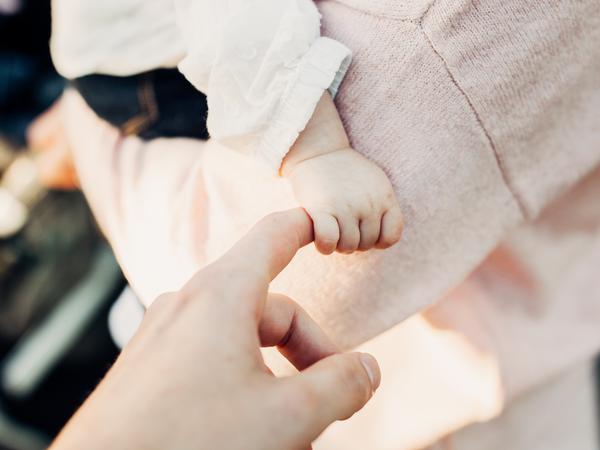Human children - physiological premature births
As I have already written in an older article, biologically speaking, we humans are neither nest feeders nor nest fledglers, but rather "baby carriers". One of the reasons for this is that physiologically, i.e. physically, we come into the world too early. Why this is so and what effects this has, I would like to briefly describe to you in this article.
Why do we come into the world "too early"?
There is a theory that we are born physiologically premature because the pelvis had to change when the apes started to straighten up and only walked upright. The pelvis had to become narrower so that upright walking was possible for a longer period of time. At the same time, another development made it necessary for us to be born earlier: Our brains, and thus our heads, became larger and larger. The fact that we humans became more and more intelligent therefore had a decisive disadvantage right at the beginning of our lives, the large head. In combination with the now smaller pelvis, this made an earlier birth necessary, which then also takes a relatively long time and is exhausting for mother and child.

How much earlier than necessary we are born, no one can say exactly. Estimates vary between 3 and 9 months. Therefore, some refer to the first period after birth as the fourth trimester. This is because this period is really crucial for development. We humans are also dependent on other humans for a relatively long time.
Incidentally, the term physiological prematurity was coined by zoologist Adolf Portmann.
What are the effects of physiological prematurity?
To answer this question, I would like to ask another question: What makes us human? What are typical behaviors that distinguish us and also set us apart from other animal species? I dare to say that almost all of these characteristics are not yet shown at birth. However, the development for this is already laid out as an inner program, so that, for example, all babies learn to walk sooner or later, if there is no serious illness or extremely restrictive environmental conditions.
To come back to the initial question, an upright walk, the communication by means of language, insightful thinking and rational acting describe some basic characteristics of a human being. But these have to develop first, which is why our children are dependent on us for quite a long time.
As I described above, the first period after birth is sometimes called the 4th trimester. So it's no wonder that many babies benefit from being carried, especially during this time, and often really demand to be close to the body. Just as in the womb, babies have the feeling of closeness, at the same time they feel the body, smell the mother or father and hear the familiar heartbeat. They perceive the same movements that they have already felt in the tummy.
However, our little babies already bring a lot to the table. They are much more competent than we sometimes think. Of course, these competencies are different from those of an adult, but they are the competencies that are necessary for the current stage of development. After all, our children are not imperfect, incomplete adults, but just the perfect children.
Image sources:The cover image is a photo by Liv Bruce and comes from unsplash.com.
The image in the article (hands) comes from unsplash.com.
No comments yet.